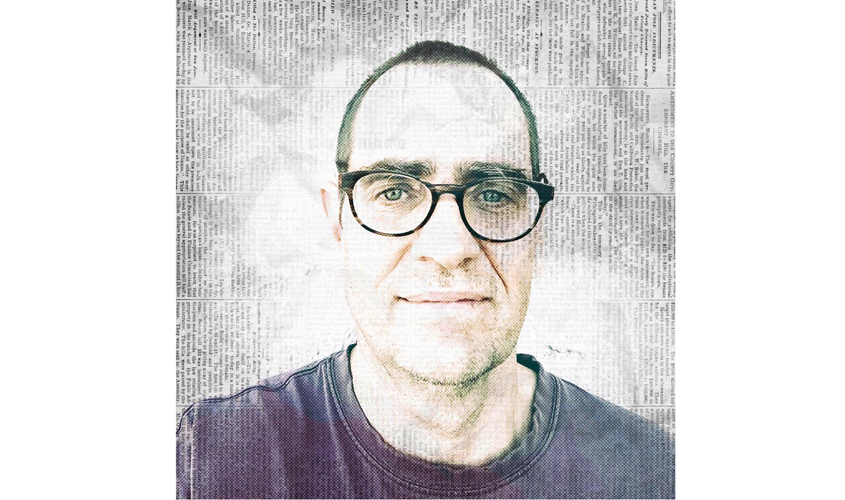The Shah of Chicago
By Nate Rabe
Published by: Speaking Tree
Pages: 268
Price: Rs 299
Etching a brilliant antihero, Yaqub Ali Hassan Shah, a.k.a. Jack King, whom we fall in love with almost instinctively, Nate Rabe’s The Shah of Chicago is a heart-rending homecoming story of a wayward man, whose flawed ways from the opening of the novel surprisingly charm us, a feeling similar to the strange affinity the female protagonist, Afroz, feels towards her “Mr King”.
Rabe introduces Jack to the readers with the latter relishing his newly found freedom after first stepping out from the Pontiac Correctional Centre in Illinois after serving a period of four years. Slowly revealing the reason of his imprisonment, the narrative unravels that Jack was “set up” in a “coke dealing” case by an acquaintance long after he had “renounced the old ways”.
Gradually unveiling Jack’s character, Rabe adds layers to his personality as he narrates to us the misfortune of Jack’s marriage to his cousin Nasreen, his conscious denial of his Asian (Pakistani) roots, his misfit stature in a wealthy and respected family, and above all his inner struggle aggravated with self-loathing, which surprisingly comes to fore when the otherwise brash Jack confesses to Afroz, “I’m a fallen man. I can’t get up.”
With the employment of an occasionally nonlinear narrative, Rabe takes the readers back and forth through Jack’s memories. Through the references of his childhood memory about his mother Tahira Akhtar, whom Jack fondly remembers as the person that would “coax him gently to peace and quiet with her words”, the author gives us an up-close look into his tender and sensitive personality. On the other hand, using the multiple episodes testifying the unreasonable abhorrence Ali Hassan feels for his son, Rabe establishes the rationale for Jack’s off-course lifestyle, thereby salvaging him.
The plot, which has an abundance of drama, thriller, crime, action, and romance, would have made for a stereotypical Bollywood film, but it stands out with its effective narrative technique that fittingly uses juxtaposition to make the characters relatable. The recurrent comparisons made between Afroz-Jack and Andy-Jack hold the story tight and aid in fleshing out the characters. One of the striking examples of the writer skillfully sketching characters by pitting them against each other is when Jack, while emotionally baring it all to, Afroz expresses his wish to “escape from the hellhole”.
The plot, which has an abundance of drama, thriller, crime, action, and romance, would have made for a stereotypical Bollywood film, but it stands out with its effective narrative technique that fittingly uses juxtaposition to make the characters relatable.
Rabe writes: “At the point of furthest distance from everything and everyone he had been running from, Jack had at last found a sense of belonging and peace with the Black Gangsta Disciples. He had at last been able to shed his Pakistani skin and sever all that tied him to his culture and roots. At that moment, Jack appeared to her like an animal that had gnawed off its own leg after being caught in a hunter’s trap. He thought he was free but in fact, he was just crippled…”
And again, “Listening to Jack, Afroz validated own decision to return to Pakistan. She had felt dislocated and rootless in England… But unlike Jack, who seemed to want to sever all connections with home, Afroz didn’t want to be drifting forever in a foreign land.”
And another one when Afroz confesses to Jack that she doesn’t want to leave Pakistan. She says, “Yes. I need a place. Maybe, because there is no one left any more than I’m close to, Pakistan seems like my only surviving relative. If I went back to England I’d be all alone. I am not as good at that as you are.”
The political instability that the author often hints at reflects the volatility of the characters including that of Jack, Afroz, Andy (a foreigner working for Afghan refugees) and Ahmadzai, the lawyer. Rabe further stresses on the idea of a flawed world during an instance that has Jack saying, “The official and the hidden… two parallel worlds that deny the other’s existence but depend on each other for survival. This country is in a state of suspended denial”, which puts the ideal against the actual.

In another instance, which transpires when Jack was forced (by his Nanima) to acquaint himself with the social circle in Pakistan, the author highlights the superficiality of the outside world. “… People who tried to act sophisticated but smoked stale English cigarettes. People with absolutely no clue about the world beyond their air-conditioned sitting rooms filled with doily-covered, overstuffed, and ghastly furniture. People who liked to invoke the word ‘family’ so they could get you can and think like them,” writes Rabe.
The constant references made to Steve Mcqueen’s The Great Escape and Jack’s irrevocable longing for it also assume huge importance. In spite of his committed efforts to be known as an American, Yaqub (Jack), more like accepting his failure and acknowledging zero possibility of an escape, has to get comfortable with his brown skin and abandon his idea of settling in Chicago in the end.
While this final heroic act reclaims Jack from his murderous past, the poignancy of Afroz’s “escape” to Birmingham leaves us dispirited.

